In 1925, F. Scott Fitzgerald published The Great Gatsby. It’s a complex tale, with elements of Faust and forbidden love, and that’s why it’s considered a great novel. But the reason it has such a great hold on our imagination — the reason people read and reread it one hundred years later — is the richly evoked ambiance of decadent, jaded elegance.
That same year, the Mayo Hotel opened. Back in the day, when Tulsa was the oil capital of the world, anyone who even dreamed of being anyone stayed there. John F. Kennedy, Katherine Hepburn, Charlie Chaplin, Harry Truman, Elvis Presley, Eleanor Roosevelt Mae West — all that gilded, long-gone elite.
It became an oilman’s hangout. Frank Phillips and Bill Skelly had a drunken fistfight in the lobby. Pretty Boy Floyd never stayed there, but when he was on the Ten Most Wanted list, the FBI sent agents to check, reasoning that the hotel was so luxurious that he would risk arrest and certain conviction to enjoy it.
But by the time I got to Tulsa, the party was over. I used to walk by the abandoned downtown shell and try to peer through the boards that covered the entrance, hoping for a glimpse of the ghosts that surely haunted it, bygone shades dancing at long-forgotten balls, just like that old Kubrick flick The Shining.
In 2001, Tulsa businessman John Snyder purchased the Mayo for $1. His friends told him he overpaid. In the next decades, he and his family poured $40 million into a loving, careful, slow restoration, returning the Mayo to the glory of bygone days. The soaring, stunning lobby, gleaming with stark black and white decoration, still makes jaded visitors gasp in awe. But one thing was missing: a truly glamorous restaurant to fill the space of the original Mayo’s elegant dining room.
Now, after years of work by John Snyder and his daughter, Macy Snyder-Amatucci, the work is complete. Dimly lit, high ceilinged, with lots of gilt work and chandeliers, the new restaurant awaits any passing Gatsbys. Its name: 1925. Its main attraction: the food.
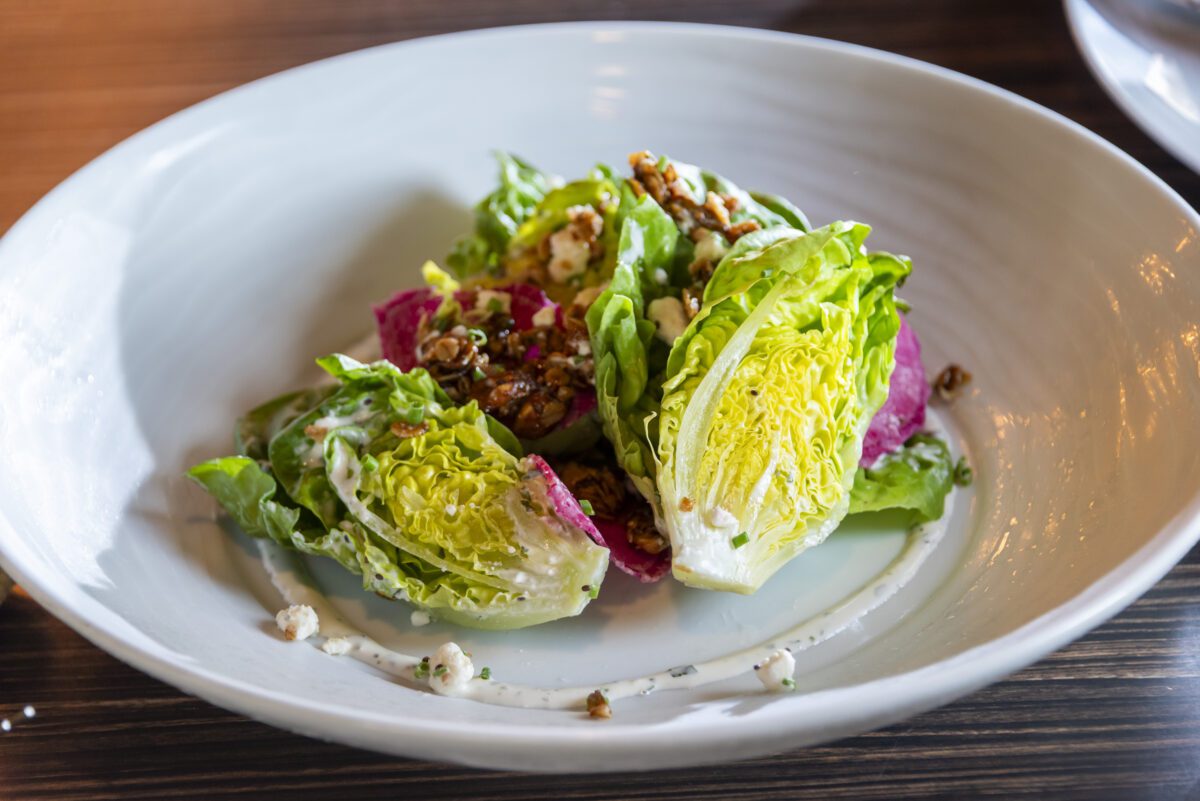
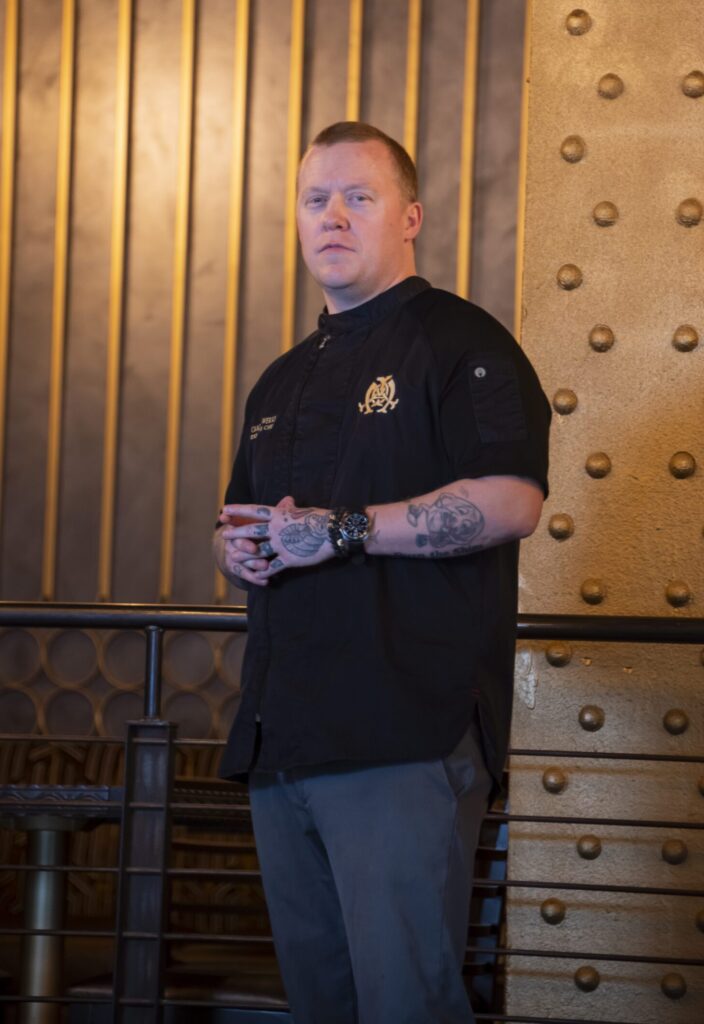
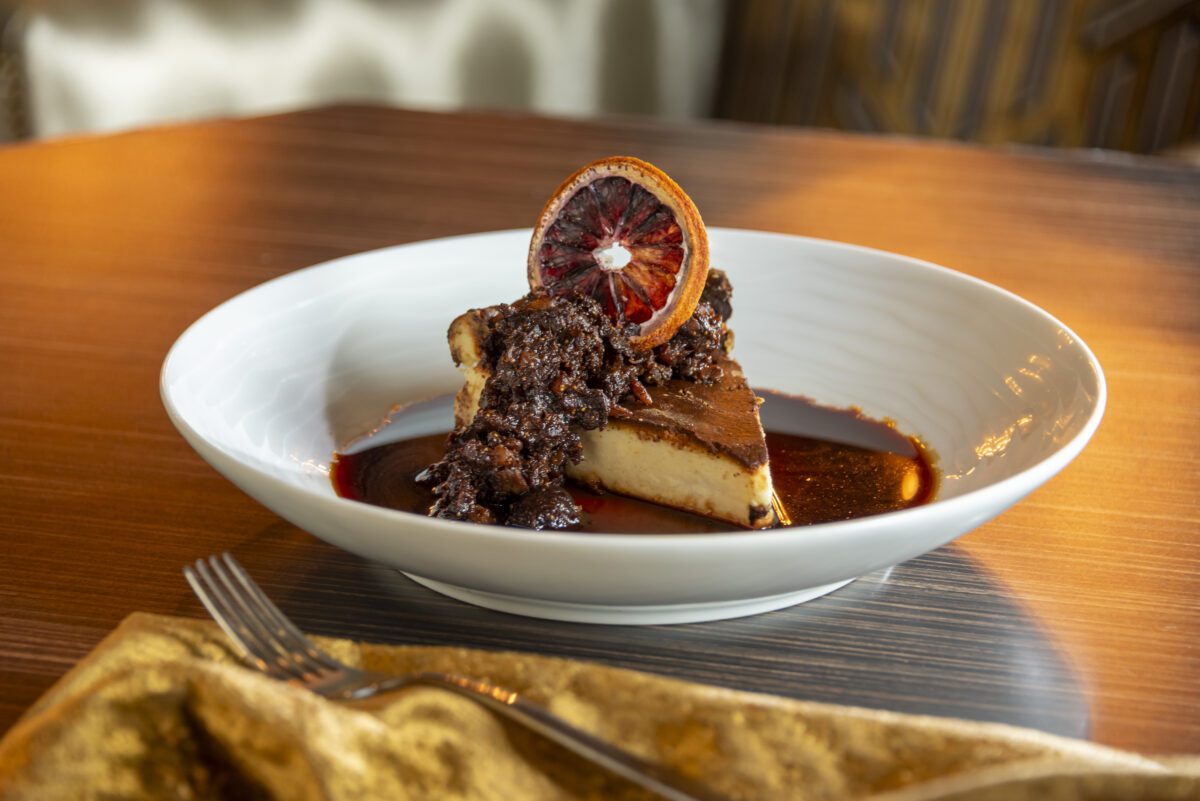
The Snyders picked Cameron Werry to be executive chef, responsible for overseeing the food of the entire hotel (including room service) and wisely gave him great creative latitude. Werry was born in Banff, a resort town in the province of Alberta, Canada, and grew up in the kitchens of his restaurateur father’s many kitchens. He never considered any career other than chef.
“I always felt at home in the kitchen,” Werry says. “I love the camaraderie, culture and teamwork.”
Werry’s worked just about everywhere, from a Michelin two-star restaurant in San Francisco to the Chalkboard to the Tulsa Zoo, where he brought fine dining touches to every concession stand. Werry designed this menu to be different.
“I don’t want to be like the guy next door,” he says. “I’ll leave the shrimp cocktail and hummus dip to him.”
What sets the dishes apart is their creativity and the skill and time it takes to execute them.
Only the best ingredients are found at 1925. Beef is USDA prime. Halibut was swimming in the ocean 48 hours before.
“And I have a guy in Skiatook who’s growing special varieties of lettuce just for me,” Werry says.
That halibut comes in a rich, silky smooth classic French beurre blanc with salmon roe on top. Other dishes were being prepared while that fish was still in the ocean. There’s a decadently rich slice of unctuously smooth pork belly that takes three days to cure and slowly cook. It’s served with honey dijon glaze, a piquant peach chow chow, and a tasty corn purée. There’s fried chicken too. It is slowly cooked sous vide for four hours, then lightly fried. It’s spectacular.
“I wanted to have a dish that, when they bring it to the table, people say ‘wow,’” Werry remarks.
Actually, all those dishes have that ‘wow’ factor. The careful, colorful presentation and plating will thrill any foodie. Service, from that consummate gentleman Evan Pigford who runs the bar, to every server who guides you through your meal, is impeccable. The first thing Werry tells every interviewer is, “it’s not fine dining.” And yet, it is.
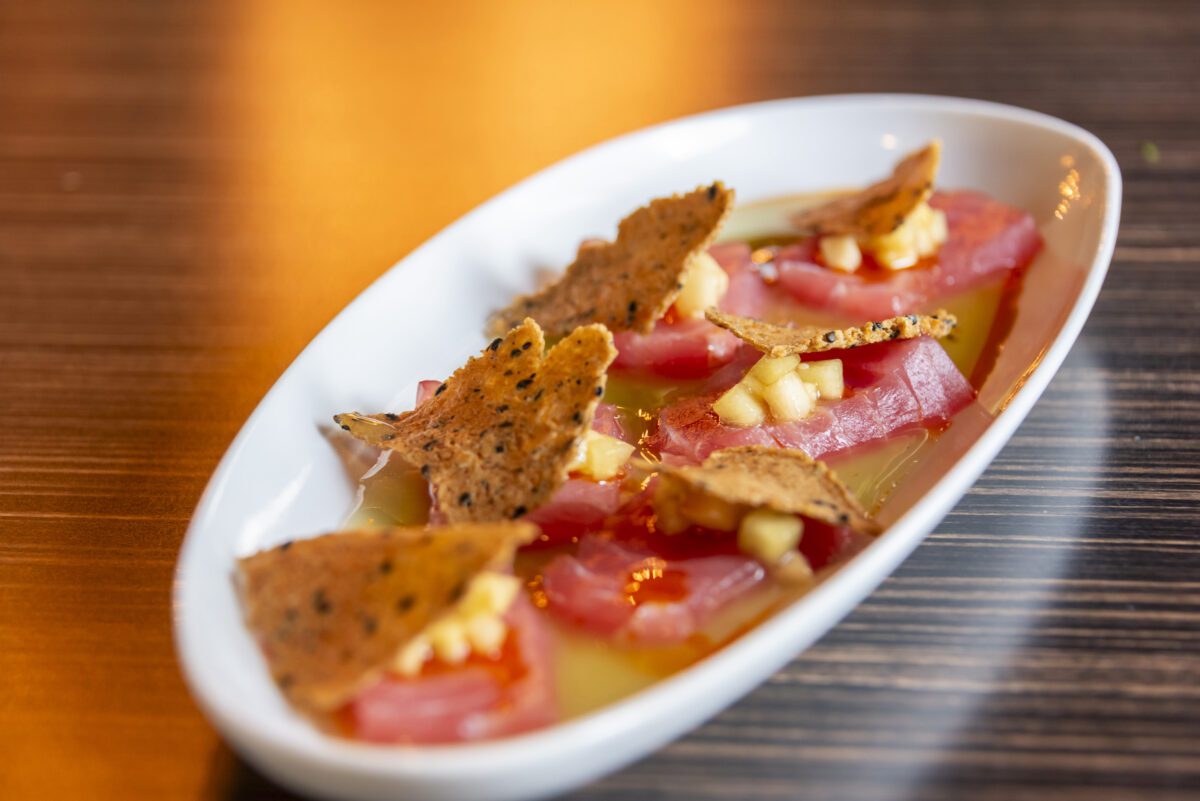
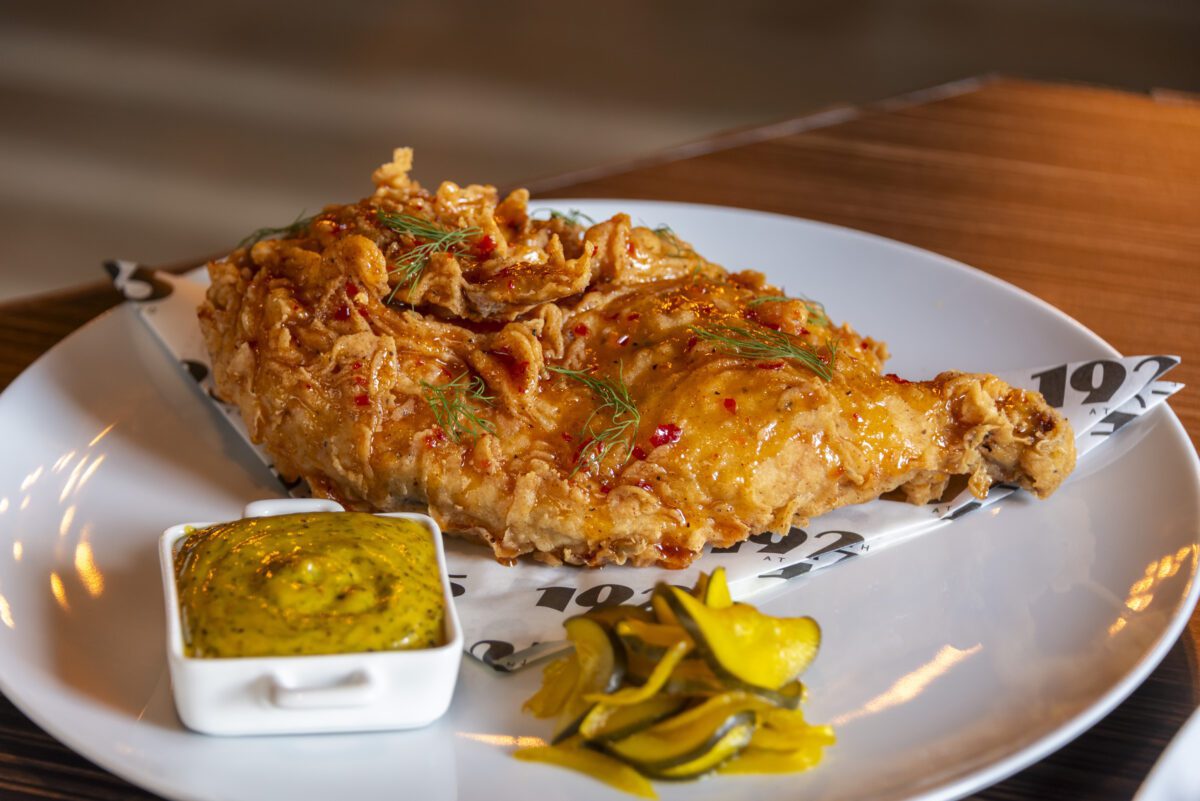
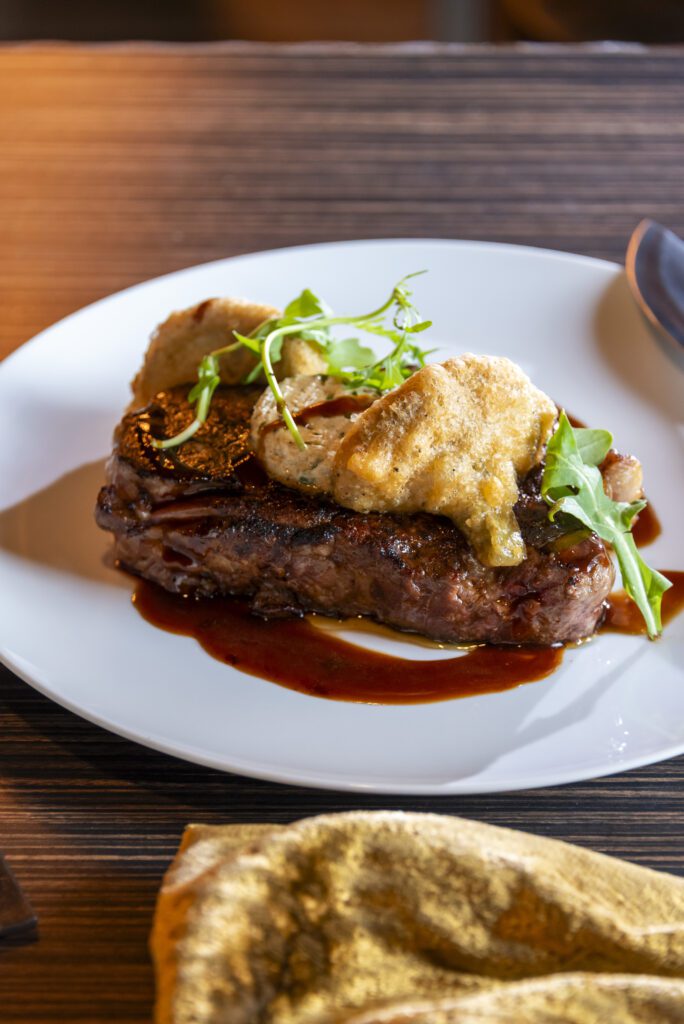
rosemary butter.






















